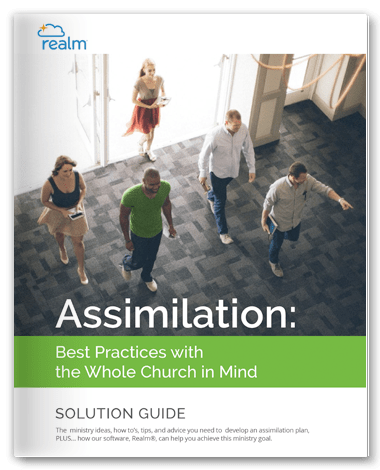Over 72 million strong, the Millennial generation is the largest in America today. This generation is vital to the health of the church, and many different strategies have been attempted to reach more of this generation. As church leaders, it is easy to fall into the trap of viewing the church like a business. We are constantly trying to reach the “consumer” in our community. Thus oftentimes we end up letting consumer culture shape how we do ministry. So when a church struggles to reach the millennial generation “target market” it is difficult not to interpret that as a marketing or brand failure. In the business world a lot of progress can come from doing the “next big thing” and competing with other businesses. However, more so than any generation, millennials feel the church should be different or set apart from consumer culture. In fact, oftentimes, they may be wary of attending churches that put too much of a focus on this type of programming. So who are these millennials, what made them that way, and how do we engage them in the Church?
In our previous article on Generation Z, we discussed Strauss Howe Generational Theory. This explains generational behaviors over time. There are many different ways to define generations however, for the purpose of this article we will be talking about people born between the years of 1981-1996. The millennial generation is characterized by the Hero archetype. Somewhat surprisingly to some they share the same archetype and behavior characteristics of the G.I./Greatest Generation that fought in World War II. This generation and archetype is known for entering adulthood during a Fourth Turning. Strauss and Howe define this “turning” as: “an era in which America’s institutional life is torn down and rebuilt from the ground up—always in response to a perceived threat to the nation’s very survival. Civic authority revives, cultural expression finds a community purpose, and people begin to locate themselves as members of a larger group. In every instance, Fourth Turnings have eventually become new “founding moments” in America’s history, refreshing and redefining the national identity.” Examples of these occur roughly every 80 years and were the Revolutionary War, Civil War, WWII, and (hopefully behind us now) the Global Covid-19 Pandemic. While the G.I. generation was at the front lines in WWII the millennial generation serves on a different front line as front-line workers and hospital staff during the pandemic.
Now that we know a little more on the history of this generation lets dive into what make them who they are today. As with anybody you can typically get a good understanding of someone’s behavior based on how they were raised and events that took place during their formative years. For Millennials the combination of being raised by omnipresent parents and with high expectations have led most in this generation to feel the need to schedule everything and experience high amounts of academic pressure. They have been told over and over again that they are special and expect the world to treat them that way. Because of events like 9/11 and various mass shootings happening in their formative years they have learned early on that the world is not a “safe place” this leaves them with the desire to create these kinds of places for others, especially their children. Never knowing a world without computers and high digital literacy they tend to do much of their socialization and get nearly all their information from the internet. With a nearly unlimited supply of information at their fingertips this generation tends to be assertive with strong views yet also prefer to work in teams.
When it comes to the church nearly 40% of church going millennials say they are able to better find and connect with God in places outside the Church. Many in this generation are critical of The Church. In a Barna Survey of Millennials not involved in a church when asked their opinions about the Church nearly 90% said they found Christians to be judgmental and hypocritical, 70% said that Christians were insensitive to others. These facts are important to highlight because on Sunday when we see someone from this generation perhaps walking into the church doors for the first time there is a very good chance they have some of these preconceived ideas of the Church in their head. This gives us an opportunity to greet them with compassion and show who the Church really is. Though many millennials are critical of the Church as it is today, the vast majority show tremendous hope in the future of what the church could be. For nearly half of Millennials surveyed this looks like more of a focus on small group bible studies. This makes sense as we already know this generation is seeking to socialize and create safe spaces for others. Many in this generation are also starved for deep authentic relationships with others deeper than surface level, a small group/ bible study provides a great solution to this. From studies we have done on this generation at Kingdom Analytics we have found one of the keys to reaching this generation is getting them plugged in with a group of peers. Oftentimes with this group (and others), attending church alone is a major point of fear (especially if attending for the first time). These individuals may come only a handful of Sundays alone. If they are not connected with a group of peers or friends within just the first few visits they will more than likely not come back. This leads to many in this generation stating that they did not feel welcome or useful in the church.
A couple of things you can do as a church to make this generation feel welcome and useful in addition to getting them plugged into a small group is offering them volunteering opportunities where they can get connected and serve others. The other thing this generation is looking for in a church is opportunities for personal growth. As this group grows in their new professional career many are seeking ways to better themselves and to be more successful oftentimes with more of a focus on career growth than spiritual growth. That said there are many programs the church can provide that may attract the attention of Millennials who would have never thought to enter the church otherwise. Successful examples of these are church job fairs, leadership training, and Financial Peace University. All of which are designed for the unchurched of this generation yet, still provide opportunities for presenting the Gospel and for spiritual growth as well.
While this generation is the largest generation and perhaps the most difficult to reach as a church, by understanding who they are, what they value and what they are looking for in a church will provide many ideas of what you can do in your church to be a place this generation wants to attend. A few practical steps you can take would be simply talking to the people in this generation in your congregation and on your staff. Why do they attend church, what do they wish the church would do more/ less of, what could the church do to make them feel more comfortable inviting their unchurched friends.
The last strategy I suggest is something we recommend to every leadership team we work with and that is to understand who is actually in your community and church. We can make generalizations about generations but they are just that, generalizations. MissionInsite brings us the Mosaic system groups every household into 1 of 71 different groups. There are 20 different mosaics that could be considered Millennials and while they have some similarities each are going to be different. It is one thing to say we want to reach more millennials and another to say we know these are the 2 millennial mosaics in our community, they make up 23% of our community but only 7% of our church congregation. Uncovering these types of insights and developing a custom action plan of reaching more of your community is something we at Kingdom Analytics and MissionInsite specialize in.
We would be happy to help you understand who exactly is in your community, who you are reaching, and how you can better reach and serve those in your community for The Kingdom.
For more information on Assimulating any generation into your church, download ASSIMILATION BEST PRACTICES WITH THE WHOLE CHURCH IN MIND. Or visit our Church Growth website for more information on generational differences and other blogs.

Andrew Esparza is the founder of Kingdom Analytics. This company has served over 300+ organizations doing good globally by helping better connect them to their community, congregation, or customers using advanced demography research. He also has experience in the church world working for the largest high school ministry in the country at North Point Community Church. Andrew graduated from Arizona State University with degrees in Design Management and Tourism Development and is CITI certified in Social and Behavioral Research.




